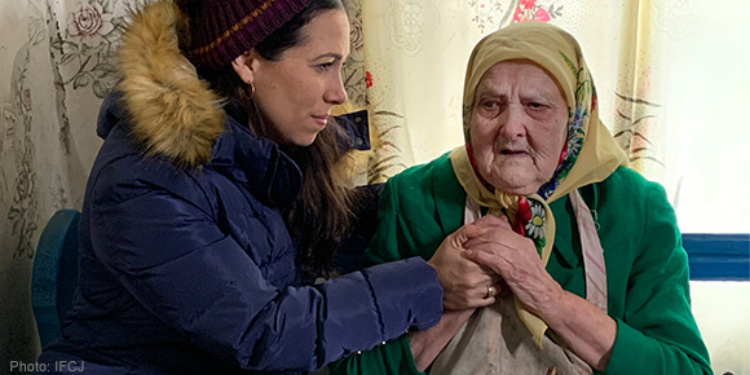Our Privilege and Responsibility
Yael Eckstein | May 12, 2021

At the tent of meeting the Gershonites were responsible for the care of the tabernacle and tent, its coverings, the curtain at the entrance to the tent of meeting, the curtains of the courtyard, the curtain at the entrance to the courtyard surrounding the tabernacle and altar, and the ropes—and everything related to their use. — Numbers 3:25-26
Each week in synagogue, Jews read through the Torah from Genesis to Deuteronomy. The Torah portion for this week is Bamidbar, which means “in the desert,” from Numbers 1:1–4:20.
My father, Fellowship Founder Rabbi Yechiel Eckstein, loved telling stories from the Jewish tradition to my sisters and me when we were younger, and we loved cuddling up with him on the couch and listening to them. The stories ranged from thousands of years old to modern times, but each one had a teaching and meaning.
One such story is about a rabbi who was sent on a mission to collect ten thousand rubbles in order to help marry off ten poor brides. The rabbi traveled to a wealthy city, but after two weeks, he had collected nothing. He became angry at God and resolved to never attempt raising charity again. Just then, two policemen walked by holding a thief who seemed extraordinarily joyful.
“Who are you?” the rabbi asked the happy thief as he passed by. “I’m Moshe, the best robber in town!” the thief replied. “If you are so good, then how come you got caught?” asked the rabbi. “Even the best thieves are unsuccessful sometimes,” the thief explained. “Well, now that you’ve been caught, I’ll bet you’ll stop what you’ve been doing,” the rabbi said. “Absolutely not,” the thief replied. “A person can never stop what doing what they are meant to do.”
Our Privilege and Responsibility
The rabbi got the message. He understood that God was encouraging him to continue his mission. Just because he experienced a degree of failure did not mean that he would fail altogether, or that he was free to abandon his mission and life’s purpose. Carrying out his God-given mission was his privilege and responsibility.
In this week’s Torah portion, the Levites were assigned their different roles in service to God. The Talmud relates that one time, an elderly Levite was having a hard time opening the Temple gates. He asked another Levite, one whose job was singing, to help him out, but the priest explained, “It is forbidden to exchange tasks.” Each Levite had to complete his assigned task – even if it was difficult.
The message of this exchange and my father’s story is that God gives each of us tasks to complete in this world. Sometimes our job seems difficult, but that doesn’t mean that we have permission to give up. Our mission is our privilege – and our responsibility. We must never give up!
Your Turn:
What task has God given you to carry out? What encourages you to continue on despite the challenges and difficulties? Share your experience in the comments below.
